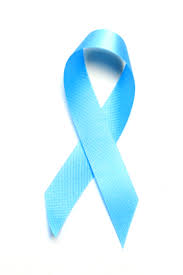 September is Prostate Cancer Awareness Month. This month is about being aware and informed. This particular issue hits close to home as the majority of our patients at our Department of Radiation Oncology are being treated for prostate cancer.
September is Prostate Cancer Awareness Month. This month is about being aware and informed. This particular issue hits close to home as the majority of our patients at our Department of Radiation Oncology are being treated for prostate cancer.
Risk Factors
A risk factor is anything that affects your chance of getting a disease such as cancer. Different cancers have different risk factors. Some risk factors, like smoking, can be changed. While others, like a person’s age or family history, can’t be changed. But having a risk factor, or even several does not mean that you will get the disease. Many people with one or more risk factors never get cancer, while others who get cancer may have had few or no known risk factors.
Age
The older a man is, the greater his risk of getting prostate cancer. In fact, more than 65% of all prostate cancers are diagnosed in men over the age of 65 and is extremely rare in men younger than 40.
Race & Ethnicity
Studies show that African American men are approximately 60 percent more likely to develop prostate cancer in their lifetime than Caucasian or Hispanic men. African-American men are also more than twice as likely to die of prostate cancer as white men. Additionally, the disease starts younger and grows faster in black men. The reasons for these racial and ethnic differences are not clear.
Geography
Men in the United States have a higher risk of developing prostate cancer regardless of their race or ethnicity. Additionally, men who live in northern regions of the country have a higher risk of developing prostate cancer because of inadequate sun exposer during the winter months.
Family History
Men with an immediate blood relative who developed prostate cancer are twice as likely to develop the disease. This risk is further increased if the cancer was diagnosed in family members at a younger age.
Other risk factors include:
• Tall height
• Lack of exercise and a sedentary lifestyle
• High calcium intake
• Agent Orange exposure
Signs and Symptoms
Not everyone experiences symptoms of prostate cancer. Many times, signs of prostate cancer are first detected by a doctor during a routine check-up. Some men, however, will experience changes in urinary or sexual function that might indicate the presence of prostate cancer. These symptoms include:
• A need to urinate frequently, especially at night
• Difficulty starting urination or holding back urine
• Weak or interrupted flow of urine
• Painful or burning urination
• Difficulty in having an erection
• Painful ejaculation
• Blood in urine or semen
• Frequent pain or stiffness in the lower back, hips, or upper thighs
To learn more about prostate cancer visit Cancer.Org
